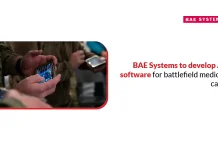Southern California Gas Co. joined Doosan Mobility Innovation (DMI) and GTI at the CES Las Vegas summit to announce their partnership in launching DMI’s first-of-its-kind hydrogen drone technology. With the support of SoCalGas and GTI, DMI will be demonstrating their DS30 drone system, which offers the best fuel cell powerpack performance with up to 120 minutes of flight time and up to 11 pounds maximum payload. Powered by hydrogen, the DS30 can monitor a 1-mile-long pipeline in a single flight.
Also Read: Paragon Space Development Corporation Agrees to Acquire Final Frontier Design
SoCalGas plans to use the DS30 drone to assist with natural gas pipeline inspections. Drone usage provides unparalleled imagery and aerial mapping services to further improve pipeline system maintenance. The DS30 demonstration will provide close-up digital photography for locations that are difficult or hazardous to access and provide imagery for aerial mapping and three-dimensional topographic models which allows for deeper insight on terrains surrounding the utility’s operations. Additionally, the drone system can provide a video record of pipeline routes, construction sites, open trenches, and working conditions.
“This hydrogen-powered drone offers an opportunity to more efficiently monitor our pipelines in hard to access areas, allowing us to collect more data to quickly solve potential pipeline integrity issues,” said Neil Navin, vice president of clean energy innovations for SoCalGas. “This project is a great demonstration on the versatility of hydrogen and its broad range of applications as a clean fuel of the future. Adopting advanced monitoring hydrogen drone technology to maintain the integrity of our pipeline system is part of our mission to build the cleanest, safest, and most innovative energy company in America.”
DMI, a market leader of hydrogen fuel cell drones, delivers commercial drone platforms with fuel cell powerpacks to maximize drone performance for inspection operations. The hydrogen-powered fuel cell drones can stay airborne for up to two hours of flight time as fuel cells have approximately 4 to 5 times higher energy density when compared to lithium-ion batteries. On average, fuel cells have a life span of over 1,000 hours and provide real-time monitoring of product status through DMI’s remote system.
This effort is part of a larger project focusing on advancing hydrogen technologies. GTI and SoCalGas, in close collaboration with several additional project partners, are working on a U.S. Department of Energy project that intends to show renewable hydrogen can be a cost-effective fuel for multiple end-use applications, including drones, when coupled with large baseload consumers that use hydrogen for clean, reliable, stationary power.




